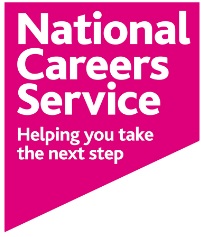 Preparation is the key to a successful interview. While every job interview is different, there are some typical questions that you are likely to be asked, Here, we provide examples of the top interview questions, and some guidance on what to consider when giving your response.
Preparation is the key to a successful interview. While every job interview is different, there are some typical questions that you are likely to be asked, Here, we provide examples of the top interview questions, and some guidance on what to consider when giving your response.
Think carefully about this question. Stress the positive aspects which have attracted you to apply for this position. Don’t mention the negative aspects of your current job or the job in question.
Their advertisement for the job may help you a little bit, but you should also think of the other qualities that may be required. These may include leadership ability, supervisory skills, communication skills, interpersonal skills, problem solving, analytical skills etc.
This is your chance to shine. Tell them about your achievements in your previous position(s) which are relevant to the new position you are applying for.
Emphasise the positive reasons why you want to join their company, but avoid aspects such as more money or shorter hours. These would not endear you to a prospective employer.
This is your chance to impress the interviewer with your knowledge of their company. Give them a rundown of their products/services, sales figures, news, company figures, customers, etc.
Again, your research into the company should help you in answering this question.
Say that you’re the sort of person who aims to succeed at everything you do and that you are very determined and will do whatever it takes to get the job done.
The answer to this question will be based on your previous experience and achievements, which relate to the role you’re applying for. At the end, you could add that you think there is a good fit between you and the job, and do ask the interviewer for their opinion.
If you think that you could contribute from day one, then say so. Then turn the question round on them and ask how soon they would expect.
Likes: stress things such as a new challenge or the opportunity to bring fresh experience to the company. Dislikes: imply there is nothing to dislike about the job, which is why you’re so interested.
Be positive about your reasons. If you have changed careers, make a logical argument as to why you did so.
This question will only be asked if you are making a radical change in your career. Always stress the positive aspects of the change rather than the negative aspects of your previous career – you do not want to come across as someone who is moving just because you hate your old career. Say why you think you will be good in the new career – this should come from your experience and achievements, stress the transferable skills you have, such as leadership ability, etc.
The interviewer is trying to see how well you would fit in to the position you are applying for. So you should stress the similarities rather than the differences. When it comes to discussing the differences it will help your case if you can show that either you have done something similar in the past or that you can quickly pick up the new skills.
Always be positive about your reasons for joining and leaving a company. Be very careful that you don’t say anything negative about your present employer. If you do, the new company will wonder what you will say about them when you leave. You might want to stress that you are looking for a new challenge and that you feel that the company who is interviewing you fits the bill.
This sort of question may be used to find out whether your old job is at a comparable level to your new job. If the new job being discussed would be a step up the ladder you will need to show that you are ready for a more demanding position. You may be able to show that you have already taken on many of the responsibilities and the necessary skills which would be required for the next step.
If you have been unemployed for a long time this may be a rather tricky question to answer. But be honest. If you have been away on holiday or done some voluntary work, you could mention this.
Make sure your answer fits in with the company who is interviewing you. A suitable reply would be that you are looking for a new job where you can apply your existing skills and learn new ones.
If you are, say so, but don’t give too many details away – it will weaken your negotiating position later. If you do not have any other job offers at the moment just say that you have a few irons in the fire.
Say that he/she was the sort of person you could learn from and you communicated well with, which meant that the task in hand was completed on time.
Stress the positive things you did, including your achievements. Even if some or much of it was paperwork, you can still show your interest in the way it was tackled.
This question is only relevant for senior managers or sales people. If you have increased sales and/or profit then don’t be afraid to shout about it. If you haven’t increased sales, say why not, e.g. general downturn in the market etc. It might then be a good idea to mention an achievement in a previous job if your performance was better there.
If you have reduced costs say so – companies are always looking for ways to reduce costs.
Pick your best attributes and achievements from your career.
You should say you do. Share some work related achievements that are in line with the position you are discussing.
You should pick an achievement that relates to the company’s needs.
Try to pick a failure you were later able to correct or something that is not really important.
Choose a minor flaw that isn’t essential to the job. Turn it into a positive by explaining how you’ve worked on the weakness. For example: “’Sometimes I’m too enthusiastic when working on a new project. But I’ve learned to adjust to everyone else’s pace, and not go charging ahead.’”
If you progressed faster than normal you should say so. If growth was not as good as expected then be careful how you phrase this.
Your answer should be along the following lines “I always think it is important to get feedback on how I’m performing so I can improve any areas which my manager/supervisor highlights.” Then ask “do you have regular staff appraisals and a staff development plan?”
You should say it is someone who listens to other people and can delegate whilst maintaining overall control of the task at hand, bringing in the project on time and to budget. Good planning skills are essential.
You should say that you can. You could ask how much responsibility you would have.
Our suggestions are career growth, opportunity to learn new skills, good co-workers etc.
Try to think about how you have reacted to different managers and which factors have motivated you. Don’t say too much in reply to this question, because if your answer is contrary to the management style of the company, they will not be keen to employ you.
Hopefully you can say “Yes” and say you have to find out what motivates a person and give them recognition for a job well done. You should always give them encouragement and help them when required.
Say that you are prepared to do whatever it takes to get the job done well and on time and try to do disagreeable things first to get them out of the way rather than putting them off.
Show how you have progressed throughout your life and how you have accepted and taken on responsibility for the actions of yourself and others. If you have not really had many work related responsibilities, you can mention other responsibilities you have had outside work.
You need to say you can. You could ask how much pressure the job involves.
You would be prepared to work the necessary hours to get the job done on time.
Link in your goals with the company who is interviewing you.
Your hobbies and interests can tell an employer a lot about you, including whether you are sociable or solitary and whether you can take on “leadership” roles. So you should think about which interests will paint the right picture of you given the position you are discussing.
If you have, you will need to handle this question with great care. Try and put yourself in as favourable light as possible without being too dismissive. If you have later been able to correct any deficiency which resulted in your being fired, you should tell the interviewer.
If you are, say so. If you do not want to move then you do not have to accept the job – try and come across as someone who is positive.
Again, if you are, say so. You want to sound positive, so find out how much travelling is involved before you turn the job down.
This can be a difficult question to answer if you are frequently off sick or you have just recovered from a prolonged period of illness. If you have generally enjoyed good health and this period of illness is not typical, then you should say so.
You have to be very careful when answering this question because once an interviewer knows your current salary they will try and fix your next remuneration based on this figure. This may be satisfactory if you only wanted a modest rise in salary and your current salary is in line with their salary range, but, what if your current salary is substantially lower than the rate for the job, or if you want a substantial salary rise? In these cases you would be best advised to say that you do not really want to prejudice yourself by being too high or too low. Ask if you can discuss this later after the responsibilities for the job have been discussed; you may also want to ask them what the range for the job is (if you don’t already know).
Be very careful when you answer this question – you do not want to appear to be greedy. If you are applying for a specific vacancy you could ask them what the salary range is. Once they have answered you could say “I think my experience would place me at the top end of your range, don’t you?” If they ask you this question fairly early on in the interview you could delay answering by saying “it is hard to discuss salary without first knowing a little bit more about the job and the responsibilities.”
Say that you expect excellent references.
The National Careers Service provides free, up to date, impartial information, advice and guidance on careers, skills and the labour market in England to anyone aged 13 and upwards. To speak to a National Careers Service adviser, call 0800 100 900 or use our webchat (8am to 10pm, 7 days a week)
